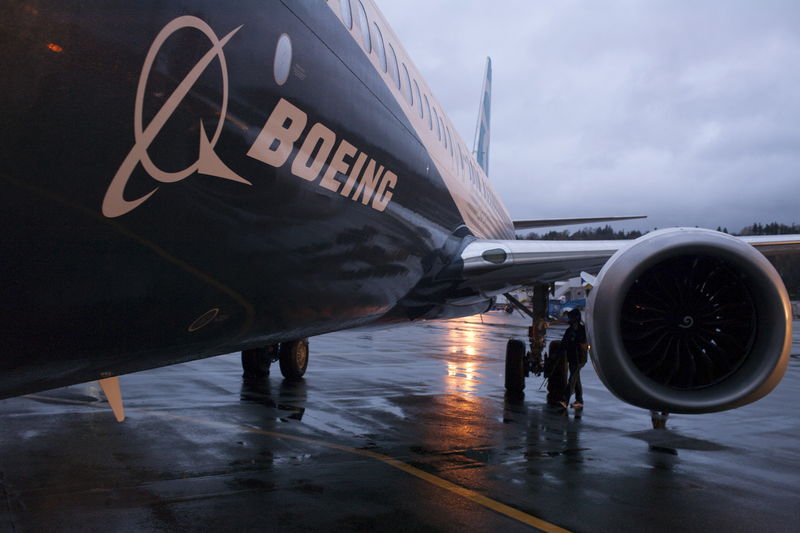This post was originally published on this site
https://i-invdn-com.investing.com/trkd-images/LYNXMPEIBC0X1_L.jpg
NORTH CHARLESTON, S.C. (Reuters) – Boeing (NYSE:BA) Commercial Airplanes Chief Executive Stan Deal on Tuesday said the U.S. planemaker will continue to push for Congress to pass legislation to allow for the Boeing 737 MAX 7 and MAX 10 certification if a Dec. 27 deadline passes.
“We’re still working obviously and hope something happens this year — got another shot early next,” Deal said on the sidelines of an event. “We’re going to hope Congress does their part of this obviously.”
United Airlines Chief Executive Scott Kirby (NYSE:KEX), whose airline has ordered more than 100 MAX 10s, told reporters on Tuesday that he did not think lawmakers would act on the extension until next year.
After Dec. 27, all planes must have modern cockpit alerting systems to be certified by the Federal Aviation Administration (FAA), which could jeopardize the futures of the MAX 7 and 10 or mean significant delays for the new aircrafts’ deployment — unless Congress passes legislation.
The requirements were adopted by Congress as part of certification reform passed after two fatal 737 MAX crashes killed 346 people and led to the bestselling plane’s 20-month grounding.
Last month, acting FAA Administrator Billy Nolen told reporters it was his sense the FAA cannot continue any certification work on the airplanes after late December without action from Congress.
Asked if the FAA can work on non-cockpit alerting issues if the deadline passes: Deal said: “That’s really a question for the FAA to clarify. We’ve obviously raised that question.”
Deal said the FAA has to clarify what it thinks it can do on certification tasks after Dec. 27 if Congress has not act.
Deal said Boeing said in October it expects the 737 MAX 7 to be certified this year or in 2023. Deal said Tuesday he thinks the MAX 10 could get certified in later 2023 or early 2024 assuming Congress grants the waiver.
United Airlines and Boeing both think it is safer to have a common cockpit alerting system.

